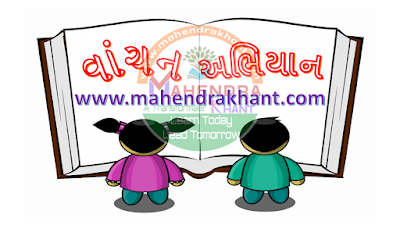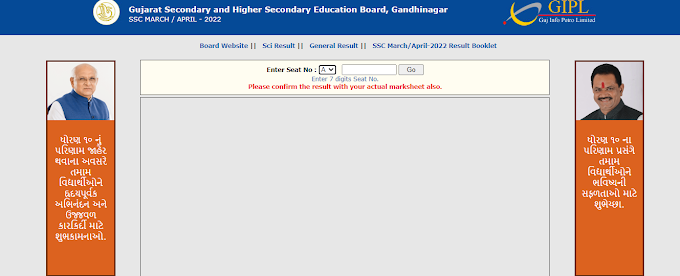VANCHAN ABHIYAN UPDATES
 |
| VANCHAN ABHIYAN |
|
FOLLOW MAHENDRA KHANT ON
SOCIAL MEDIA |
|
|
WHAT’S
APP |
|
|
WHAT’S
APP BROAD CAST |
|
|
TELEGRAME |
|
|
FACEBOOK
PAGE |
|
|
FACEBOOK |
|
|
MESSAGE
ON FB PAGE |
|
|
TWITTER |
|
|
LINKEDIN |
|
|
SHARE
…CHAT |
|
|
KOO |
|
TABLE OF CONTAINS(toc)
WHAT IS READING
"Reading" is the process of looking at a series of written symbols and getting meaning from them. When we read, we use our eyes to receive written symbols (letters, punctuation marks and spaces) and we use our brain to convert them into words, sentences and paragraphs that communicate something to us.
- Reading can be silent (in our head) or aloud (so that other people can hear).
Reading is a receptive skill - through it we receive information. But the complex process of reading also requires the skill of speaking, so that we can pronounce the words that we read. In this sense, reading is also a productive skill in that we are both receiving information and transmitting it (even if only to ourselves).
Reading is making meaning from print. It requires that we:
Identify the words in print – a process called word recognition
Construct an understanding from them – a process called comprehension
Coordinate identifying words and making meaning so that reading is automatic and accurate – an achievement called fluency
Sometimes you can make meaning from print without being able to identify all the words. Remember the last time you got a note in messy handwriting? You may have understood it, even though you couldn't decipher all the scribbles.
Reading Skills Objectives
1. Concepts About Print
2. Visual and Auditory Discrimination
3. Word Identification
4. Word Recognition
5. Vocabulary Building
6. Comprehension — Literal, Inferential, Critical
7. Self-monitoring Strategies
8. Fluency
9. Habits and Skills of Lifelong Reading
10. Oral Language Development
The Many Benefits of Reading
Why You Should Read Every Day, According to Science
Reading is good for you, and published research has proven that claim again and again. Here are six benefits of reading that will make you want to crack open a book, plus some tips on how to fit more reading time into your everyday life.
1. Reading improves your communication skills
Reading helps build your vocabulary, which has a direct impact on how effectively you’re able to communicate. When you read, you’ll gain access to a wealth of words that will help you describe how you’re feeling, help you explain a point clearly, and so much more.
2. Reading literally exercises your brain
Your brain is a muscle, which means you have to use it often if you want your mind to stay sharp. Research has even shown that mental stimulation, like reading, can help prevent Alzheimer’s disease.
Research published by the Proceedings of the National Academy of Sciences suggests that elderly people who read regularly or play mentally challenging games are 2.5 times less likely to have Alzheimer’s disease.
3. Reading can make you a more empathetic person
Theory of Mind is our capacity to understand that different people have different beliefs and that these often differ from our own internal beliefs and desires. This skill is vital for maintaining healthy social relationships and developing empathy.
Some research has shown that literary fiction in particular can help develop this important skill, likely because you’re reading about the characters and their emotions.
4. Reading helps reduce stress
There’s nothing quite as relaxing as getting lost in a good book, and research has even proven the stress-reducing abilities of reading. A 2009 study by the University of Sussex found that reading for a mere six minutes can reduce stress levels by up to 68 percent.
The key is to read for pleasure, not for work, school, or because of another obligation.
5. Reading self-help books really does help
According to the research, self-help books really are helpful. It’s called bibliotherapy, and a study published in the journal PLOS ONE showed that reading self-help books (along with support sessions around how to use the books) was associated with decreased depression levels after one year, compared to patients who only underwent more typical treatments for depression.
6. Reading can help you sleep better
We all know how important it is to get enough sleep, and it turns out that reading before bed can help you fall asleep faster and sleep more deeply. It’s not surprising that reading has such a positive impact on sleep, especially considering its stress-reducing effects.
- Fitting more reading time into your everyday life
If you feel there’s never enough time in the day to read, try incorporating some of these tips into your routine:
Understand how habits are developed. Reading is a habit, and these tips for keeping up with your New Year’s Resolutions can be applied to all habits.
Designate a space and time for your reading. Find a comfortable spot for your reading and choose a time to read each day. As you begin to notice the positive effects of reading you may find yourself wanting to spend more and more time in your reading area.
Ask friends for book suggestions. Choosing a book to read can be half the battle, so ask your friends for their favorites. GoodReads is great tool for tracking your reading and finding new books to enjoy.
some benefits of reading
Here are some benefits of reading that everyone should take advantage of to make their lives better:
- It improves your language skills
- It improves comprehension
- It makes you more empathetic
- It challenges stereotypes and social mores in society
- It reduces stress and anxiety
- It helps in building a vocabulary
- It stimulates imagination
- It builds confidence
- It lowers the heart rate and relaxes muscles
- It prevents cognitive decline in older people
- It improves your sleeping habits
CLICK BELOW LINKS TO READ MORE DETAILS







THANKS FOR FEEDBACK